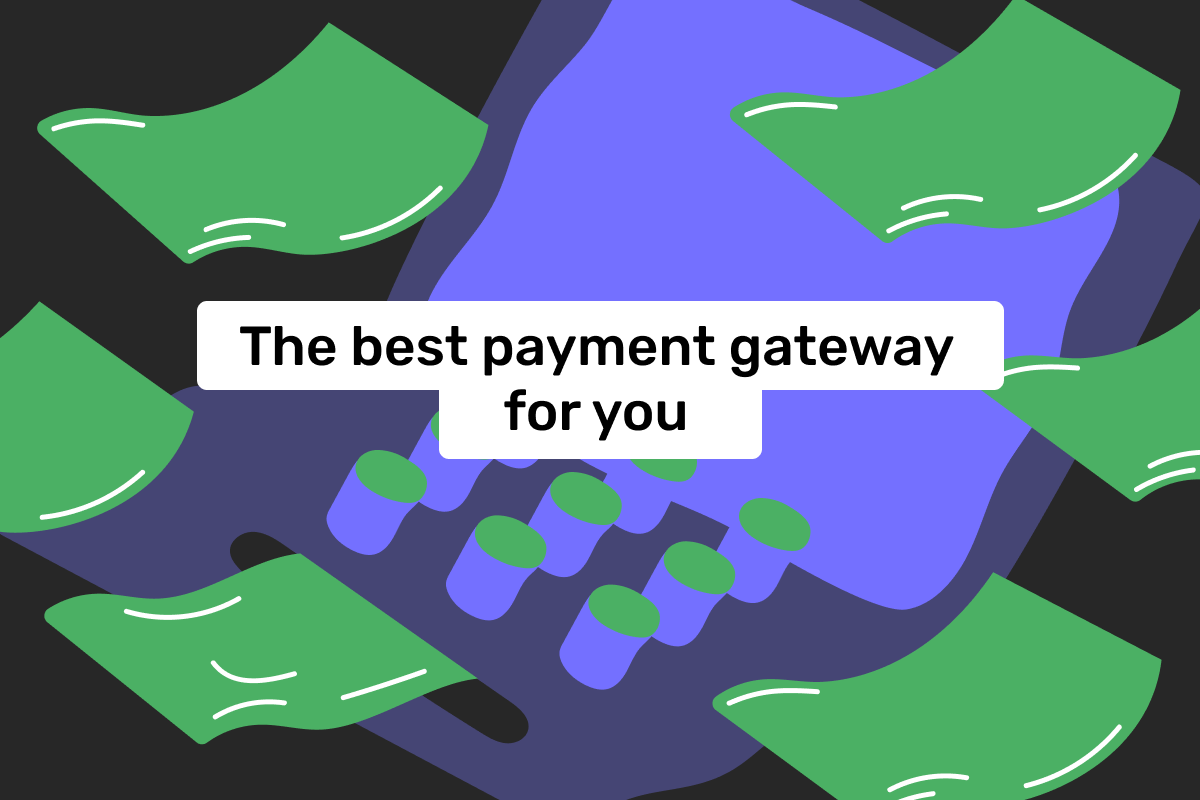There are many aspects to financial services for companies that sell their goods or services. One such thing is a payment gateway. Unfortunately, only a few merchants dive into the nitty-gritty of how the right payment gateway can improve your conversions.
Genome is here to fix that! In this article, our team will explain how to choose a payment gateway for your e-commerce store and other types of business. We will also uncover the difference between payment gateways and payment processors, as some people consider them the same thing.
What is a payment gateway?
Before learning how to choose the best payment gateway, let’s first dismantle the term itself. It is a crucial technology that allows merchants to accept payments from their clients, specifically on their websites. Thus, you can say that an online payment gateway is a digital version of physical Point-of-Sale terminals.
The main objective of a payment gateway is to receive the cardholder’s data from the merchant’s website and send it to the payment processor.
Typically, you get a payment gateway feature when you open a merchant account at a bank or another financial institution. But, there are also separate payment gateway companies you can partner with if they offer more favorable services. In fact, merchants can even have multiple payment gateways to accept different payment methods!
Open an account
in Genome online
Payment processors and how they compare to payment gateways
A payment processor is another component in the process of accepting payments from clients. Its purpose is to receive payment information from a payment gateway and then send it to a card network to initiate a transaction. Thus, it acts as an intermediary between a payment gateway, card networks, acquiring and issuing banks.
Selecting a payment processor that will accommodate your company’s needs is also important. So, how to choose a payment processor? Well, it is a complex issue, as you usually get payment processor services when you open a merchant account at a financial institution. Thus, we advise you to carefully assess the full picture: how your financial institution operates, what the fees are, whether it is secure, etc.
Let’s compare payment gateways and payment processors to highlight the differences between them better:
Points of comparison | Payment gateway | Payment processor |
Clients’ interaction with the technology | Clients partially interact with it as they enter their card data on the merchant’s payment page (which is an integration offered by payment gateway systems, usually host-to-host or hosted payment pages), which a payment gateway then securely receives. | Clients don’t interact with it. |
How the technology works | After a client enters their card information on the merchant’s website, it is sent to a payment gateway. The Gateway checks the data to eliminate the possibilities of fraud, encrypts the data, and sends it to the payment processor. | The payment processor receives the card data from the payment gateway. It initiates the transaction by sending the data to Visa, Amex, or any other card association, depending on which card brand the client uses. |
If you want to know more about all stages of payment processing, please check out this article.
Factors to consider while choosing a payment gateway
Finally, let’s move to the main topic of the article: how to choose the right payment gateway. Multiple factors play a role in finding the right payment gateway solution:
Is your business compatible with a payment gateway? You need to ensure that the payment gateway you want to partner with works with companies within your industry, region, and markets.
Do you want to partner with a bank or a separate payment gateway? Decide which option is better for you. Banks and financial institutions usually provide an all-in-one solution for merchants, including merchant accounts, payment gateways, payment processors, etc. Meanwhile, payment gateway companies provide industry-specific gateway integrations and services.
What payment page integration do they provide? Another thing you need to pay attention to when choosing a payment gateway. This parameter indicates how clients will interact with a payment page. For instance, Genome offers host-to-host*, hosted payment pages*, and mobile SDK integration*. The first type allows merchants to keep a payment page exclusively on their website, while the second will redirect clients from the merchant’s website to a third-party payment page. And Genome’s mobile SDK allows the integration of a payment page into the merchant’s app. All of Genome’s solutions are easy to integrate, customizable, and work smoothly.
Payment methods. How to choose a payment gateway for your e-commerce store? Payment methods* are one of the top priorities for your e-commerce company. Ensure that a payment gateway offers all the payment methods that your clients usually or potentially will use.
Available currencies. As with the previous criteria, if you accept payments internationally, your payment gateway must be able to accept different currencies or have fair and transparent conversion rates.
Security is key. The payment gateway or a financial institution that offers it must comply with major regulatory requirements and be PCI DSS, PSD2, and GDPR-compliant. Also, a payment gateway company or bank should have anti-fraud tools.
Recurring payments. If your business is subscription based or you want to accept recurring payments, you need to ensure that such an option is available when choosing a payment gateway.
Customer support. Of course, no service is complete without a reliable customer support department that has multiple channels for clients to reach out.
Prices. The most obvious part, but an important one. Compare the fees and choose the best option for your company.
*Please note that Genome’s merchant services have been temporarily unavailable since September 2024.
Open an account
in Genome online
FAQ
What to consider when choosing a payment processor?
It all comes down to which bank or payment service provider you want to partner with. Check their security measures, fees, which markets they operate in, which transfers they provide, etc. It is the first step in selecting a payment processor.
Which three features need to be considered when selecting a gateway for a service provider network?
The three main things are their payment methods, payment page integrations they provide, and the security aspect. More features are described in the article above.
Which payment gateway is best for international payments?
There are many banks and separate payment gateways that offer integrations for international payments. Before choosing a payment gateway, gather information on what are the most common payment methods that your potential clients use. Then, compare international payment gateways by this metric and select the one that offers such payment methods.
Which payment gateway is best for startups?
Not all payment gateways work with startup companies, and that should be taken into account. So, how to choose a payment gateway if your business is relatively small?
What are the most important factors when selecting a payment gateway partner?
Many factors should be taken into account when choosing a payment gateway. For instance, if a payment gateway is suitable for a business in your industry, the cost of its services, the features that a payment gateway provides, and its customer support.
Does it take very long to set up payment gateways?
The time differs for various banks and payment service providers. In general, the time frame in which a merchant will get a payment gateway set up on their website is two days to a week.






